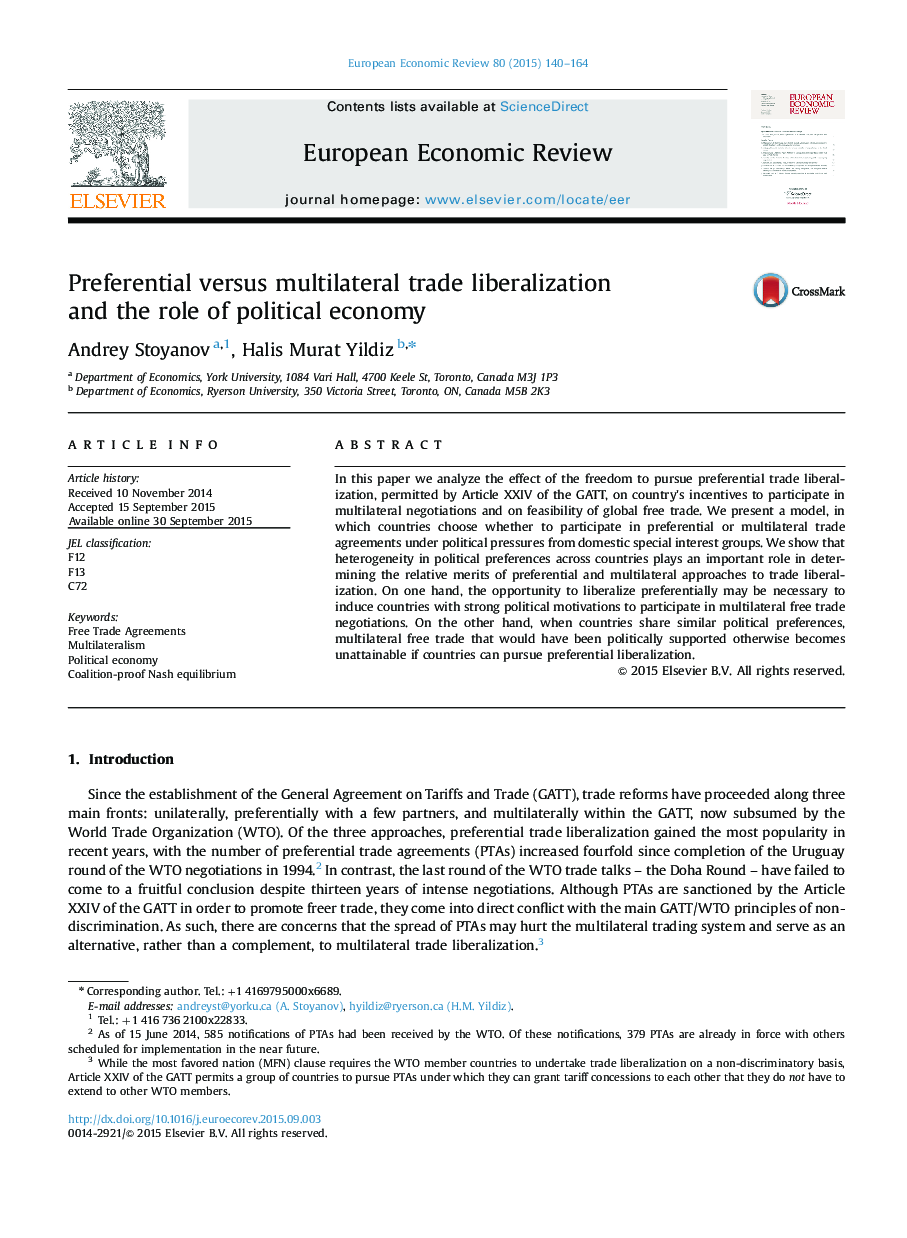| Article ID | Journal | Published Year | Pages | File Type |
|---|---|---|---|---|
| 5066586 | European Economic Review | 2015 | 25 Pages |
In this paper we analyze the effect of the freedom to pursue preferential trade liberalization, permitted by Article XXIV of the GATT, on country׳s incentives to participate in multilateral negotiations and on feasibility of global free trade. We present a model, in which countries choose whether to participate in preferential or multilateral trade agreements under political pressures from domestic special interest groups. We show that heterogeneity in political preferences across countries plays an important role in determining the relative merits of preferential and multilateral approaches to trade liberalization. On one hand, the opportunity to liberalize preferentially may be necessary to induce countries with strong political motivations to participate in multilateral free trade negotiations. On the other hand, when countries share similar political preferences, multilateral free trade that would have been politically supported otherwise becomes unattainable if countries can pursue preferential liberalization.
